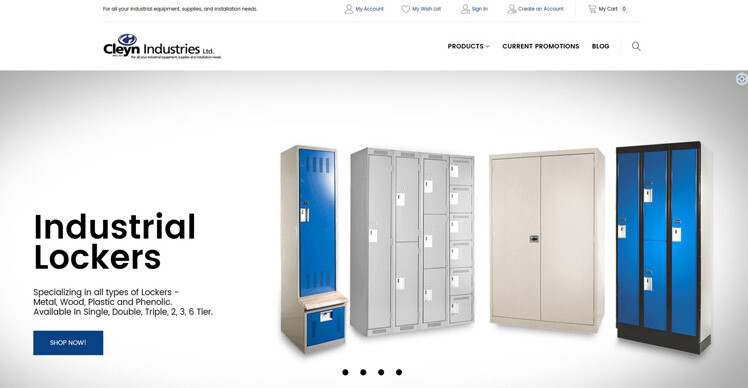eCommerce AI | Web Apps | AR/VR Software – ECA Tech
- Home
- eCommerce Solutions: 5 Best Ways to Choose One
eCommerce Solutions: 5 Best Ways to Choose One

March 17, 2025 - Technology
In today’s fast-paced digital world, having an online store has become a necessity for businesses seeking to reach a broader audience, streamline operations, and enhance customer experiences. Whether you’re an entrepreneur launching your first online store or a large enterprise looking to upgrade your digital infrastructure, an eCommerce solution plays a crucial role in your success.
An eCommerce solution encompasses a wide array of tools and software that facilitate the selling and buying of goods and services over the internet. These solutions provide a platform for businesses to manage their products, handle transactions, process payments, and optimize the shopping experience for their customers. But with so many options available, how do you select the right eCommerce solution for your business needs?
In this comprehensive guide, we will explore what an eCommerce solution is, the types available, why you need one, and how to choose the perfect one to match your goals. By the end of this article, you’ll have a deeper understanding of how eCommerce solutions work and how to use them to grow your online business.
- Drive growth
- Optimize your online store
- Leverage eCommerce analytics
- Fine-tune your existing strategy
What Is an eCommerce Solution?
An eCommerce solution refers to a set of integrated tools, technologies, and software platforms that allow businesses to manage the sale of products and services online. These solutions typically include essential features such as an online store, shopping cart, payment gateways, product catalog management, order fulfillment, and customer support.
An eCommerce solution is designed to automate and streamline various tasks involved in running an online business, including:
- Product management: Add, update, and organize products in your online store.
- Payment processing: Securely process payments via credit card, PayPal, or other methods.
- Order fulfillment: Manage inventory, shipping, and delivery.
- Marketing and promotions: Tools to run promotional campaigns, discounts, and special offers.
- Customer service: Manage customer accounts, inquiries, and post-purchase support.
Some eCommerce solutions are all-in-one platforms, meaning they provide every tool you need in one place. Others may be modular, where you can integrate different third-party tools and services to build a solution that fits your specific business requirements.
Types of eCommerce Solutions
When it comes to choosing the right eCommerce solution, it’s essential to understand the different types of platforms available. Each has its own unique features and benefits depending on your business size, model, and growth plans. The main types of eCommerce solutions include:
1. Hosted eCommerce Solutions
Hosted eCommerce solutions are platforms that provide you with a fully managed environment. The service provider hosts everything from the server to the software, so you don’t have to worry about technical management. Popular hosted solutions include platforms like Shopify, BigCommerce, and Wix.
Advantages:
- Easy to set up with little technical knowledge required.
- Secure, managed hosting environment.
- Regular updates and maintenance handled by the provider.
- Customer support available to resolve issues quickly.
Disadvantages:
- Limited customization options compared to self-hosted solutions.
- Monthly subscription fees that may increase as your store grows.
2. Self-Hosted eCommerce Solutions
Self-hosted eCommerce solutions offer more flexibility and control, as they allow you to host the platform on your own server or through a hosting provider of your choice. WooCommerce, Magento, and OpenCart are some of the most popular self-hosted solutions.
Advantages:
- Complete control over customization, design, and features.
- Ability to scale and integrate with various third-party applications.
- No monthly fees for hosting or software use (although you must manage costs for hosting and development).
Disadvantages:
- Requires technical expertise for installation, setup, and maintenance.
- You must manage updates, security, and server management on your own.
- Initial setup costs may be higher due to development and customization.
3. Marketplace eCommerce Solutions
Marketplace eCommerce solutions are platforms where multiple vendors can sell their products. Examples include Amazon, Etsy, and eBay. These platforms typically provide everything needed for sellers to get started, including built-in traffic and customer trust.
Advantages:
- Instant access to an established customer base.
- No need to worry about creating or maintaining your own website.
- Built-in tools for product listing, order management, and payments.
Disadvantages:
- Less control over branding and customer experience.
- Fees or commissions on sales, which can reduce your profits.
- Limited customization options for your store.
4. Enterprise eCommerce Solutions
Enterprise-level eCommerce solutions are designed for large businesses with high-volume transactions and complex needs. Platforms like SAP Commerce Cloud, Salesforce Commerce Cloud, and Magento Enterprise are examples of enterprise eCommerce platforms.
Advantages:
- Highly scalable and customizable to fit specific business needs.
- Advanced features such as multi-site support, internationalization, and complex inventory management.
- Comprehensive analytics and reporting tools.
Disadvantages:
- High cost, often requiring large initial investments.
- Can be complex to implement and manage, requiring a dedicated team.
- Long deployment timelines.
Why Do You Need an eCommerce Solution?
Investing in the right eCommerce solution is crucial for a number of reasons. Here are some key benefits:
1. Streamlined Business Operations
An effective eCommerce solution allows businesses to automate many manual tasks involved in managing an online store. This includes product management, customer interactions, payment processing, inventory tracking, and shipping logistics. Automation helps to improve operational efficiency and reduce human errors.
2. Scalability
As your business grows, so will your eCommerce needs. The right eCommerce solution can scale with your business, supporting a growing number of products, customers, and transactions. Self-hosted solutions like WooCommerce can be extended with custom features, while enterprise solutions offer tools to handle millions of transactions.
3. Enhanced Customer Experience
A seamless and well-optimized online shopping experience is key to retaining customers. The best eCommerce solutions come with features like personalized product recommendations, smooth checkout processes, and mobile-friendly design. These features improve the overall shopping experience, leading to better customer satisfaction and higher conversion rates.
4. Security and Compliance
An eCommerce solution helps to ensure your business complies with industry standards and security requirements, including secure payment gateways, SSL certificates, and GDPR compliance. By choosing a trusted eCommerce solution, you can protect customer data and maintain a high level of trust.
5. Integrated Marketing Tools
Most eCommerce solutions come with built-in marketing tools to help you promote your products, attract traffic, and retain customers. These features may include email marketing, SEO optimization, social media integration, discount codes, and promotions. These marketing capabilities are essential for driving sales and growing your customer base.
How to Choose the Right eCommerce Solution for Your Business
Selecting the right eCommerce solution can be a daunting task, especially with so many options available. The best choice for your business will depend on a variety of factors, including your budget, technical capabilities, and business goals. Here are some key factors to consider when choosing the right eCommerce solution for your needs:
1. Business Size and Scale
The size of your business will play a major role in determining which eCommerce solution is right for you. For small businesses with fewer products, a hosted solution like Shopify may be ideal because it’s easy to set up and manage. For larger businesses with complex needs, a self-hosted or enterprise solution may be a better fit.
2. Customization Requirements
If you need a highly customized store or specific features, a self-hosted eCommerce solution like WooCommerce or Magento may be a better option. Hosted solutions like Shopify provide some customization, but they may be limited when it comes to unique functionalities.
3. Budget and Costs
Consider both the upfront and ongoing costs of the eCommerce solution. Hosted solutions often have a subscription fee, while self-hosted solutions may require a one-time software purchase along with ongoing costs for hosting, development, and maintenance.
4. Ease of Use
If you don’t have a technical background, you’ll likely prefer a hosted eCommerce solution that provides an intuitive interface and excellent customer support. On the other hand, if you have technical expertise or access to a development team, you may prefer a self-hosted or enterprise solution that allows for more control.
5. Support and Community
Consider the support options available with each platform. Hosted solutions often come with 24/7 customer support, while self-hosted platforms may require you to troubleshoot issues on your own or hire a developer. Additionally, check for a strong user community and documentation that can provide resources for troubleshooting and advice.
6. Integration with Third-Party Tools
An effective eCommerce solution should integrate well with other tools and services you use, such as inventory management, CRM systems, accounting software, and shipping providers. Make sure the platform you choose can seamlessly integrate with your existing business tools.
Popular eCommerce Solutions in the Market
To help you make an informed decision, here’s a look at some of the most popular eCommerce solutions currently available:
1. Shopify
Shopify is one of the most well-known hosted eCommerce solutions. It’s known for its ease of use, scalability, and robust features, making it ideal for small to medium-sized businesses.
2. WooCommerce
WooCommerce is a powerful self-hosted eCommerce solution that works as a plugin for WordPress. It’s highly customizable and suitable for businesses of all sizes.
3. Magento
Magento is an open-source self-hosted platform that is highly scalable and customizable, making it ideal for businesses that need advanced features and control over their store’s design.
4. BigCommerce
BigCommerce is a hosted eCommerce solution designed for businesses that need scalability, security, and extensive built-in features. It’s great for both small and enterprise-level businesses.
5. Wix eCommerce
Wix is a website builder that includes an eCommerce solution. It’s ideal for small businesses looking for a simple, cost-effective platform to start selling online.

eCommerce Solutions
As the eCommerce industry continues to grow and evolve, so too do the eCommerce solutions available to businesses. In recent years, we’ve seen significant advancements in technology, which have drastically impacted the way online stores are built and operated. Here are some trends shaping the future of eCommerce solutions:
1. Mobile-First Shopping
With mobile devices becoming the primary way people shop online, mobile optimization has never been more critical. As part of modern eCommerce solutions, mobile-first design ensures that online stores are fully optimized for smartphones and tablets, offering seamless shopping experiences. Many platforms now offer mobile-optimized templates, integrated payment solutions like Apple Pay and Google Pay, and mobile-specific features such as push notifications to engage customers.
2. Artificial Intelligence and Personalization
Artificial intelligence (AI) is revolutionizing eCommerce by enabling hyper-personalized shopping experiences. AI-driven eCommerce solutions can analyze customer behavior, predict preferences, and deliver personalized product recommendations. This is enhancing customer satisfaction and increasing conversion rates. Additionally, chatbots powered by AI are providing real-time support to customers, enhancing the overall shopping experience.
3. Voice Commerce
As voice assistants like Amazon Alexa and Google Assistant become more integrated into consumers’ daily lives, voice search and voice commerce are expected to become more prevalent. eCommerce solutions will increasingly integrate voice search capabilities, allowing customers to find and purchase products using voice commands. This opens up new opportunities for businesses to engage with customers through voice-driven interactions.
4. Augmented Reality (AR) Integration
AR technology is enhancing the online shopping experience by allowing customers to visualize products in real-time before making a purchase. From trying on clothes virtually to placing furniture in a room via a smartphone app, AR is becoming a game-changer for online retailers. Many eCommerce solutions are integrating AR tools to give shoppers a more immersive experience, bridging the gap between online and in-store shopping.
5. Omnichannel Selling
Customers now expect a seamless shopping experience across multiple channels, whether they are shopping online through a website, via mobile apps, or in physical stores. Omnichannel eCommerce solutions integrate various sales channels, inventory systems, and customer service touchpoints into a cohesive ecosystem. This allows businesses to provide a consistent shopping experience, whether customers are browsing via their computer, smartphone, or in-person.
6. Subscription Models
Subscription-based eCommerce models, such as those used by companies like Dollar Shave Club or Birchbox, are becoming increasingly popular. These models offer recurring revenue and build customer loyalty by delivering products on a regular basis. As this model grows in popularity, more eCommerce solutions are integrating subscription management features, making it easier for businesses to offer and manage subscription-based products.
7. Sustainability and Eco-Friendly Solutions
Consumers are becoming more environmentally conscious, and many are seeking eco-friendly alternatives when shopping online. As a result, there is a growing demand for eCommerce solutions that enable businesses to track and reduce their environmental impact. From offering sustainable packaging options to integrating carbon offset features, the future of eCommerce will likely involve an increased focus on sustainability.
Final Thoughts
In the rapidly changing digital marketplace, selecting the right eCommerce solution can make or break your business. The right platform will not only streamline your operations but also improve the overall customer experience, enhance security, and help you scale as your business grows. Whether you’re a small startup or a large enterprise, the right eCommerce solution will serve as the backbone of your online presence and sales strategy.
As the eCommerce landscape continues to evolve, it’s important to stay informed about the latest trends and technological advancements. The future of eCommerce solutions looks promising, with advancements in AI, mobile commerce, AR, and omnichannel strategies poised to transform the industry. By carefully selecting a solution that aligns with your business goals and adapting to emerging trends, you can position your business for long-term success in the digital world.
Choosing the right eCommerce solution requires careful consideration, but with the right tools, your business will be well-equipped to thrive in the competitive online marketplace. By investing in the right platform, you can improve your operational efficiency, offer a better shopping experience, and ultimately drive more sales for your business.
By clicking Learn More, you’re confirming that you agree with our Terms and Conditions.

FAQ
1. What are ecommerce solutions?
Ecommerce solutions are software tools and platforms that help businesses set up, manage, and grow their online stores. These solutions include ecommerce platforms (like Shopify or WooCommerce), payment gateways (such as PayPal or Stripe), marketing tools, inventory management systems, shipping solutions, and customer relationship management (CRM) tools. They are designed to handle everything from listing products and processing payments to managing inventory and delivering products to customers.
2. How do ecommerce solutions help businesses grow?
Ecommerce solutions streamline many aspects of running an online business, which allows companies to focus on growth. They improve efficiency by automating repetitive tasks, such as order processing, inventory updates, and customer communication. With integrated marketing tools, businesses can drive traffic to their stores, optimize sales, and retain customers. Ecommerce solutions also ensure that online stores are secure, scalable, and easy to navigate, providing a better user experience that can lead to higher conversion rates and repeat business.
3. What are the best ecommerce solutions for small businesses?
For small businesses, it’s essential to choose ecommerce solutions that are cost-effective, easy to use, and scalable. Some popular options include:
- Shopify: Known for its user-friendly interface and extensive features, Shopify is perfect for small businesses looking for an all-in-one ecommerce platform.
- WooCommerce: A plugin for WordPress, WooCommerce is an affordable and flexible option for businesses that already use WordPress and want an ecommerce solution.
- BigCommerce: Another popular option that provides powerful built-in features with a focus on scalability, BigCommerce is ideal for businesses with growth in mind.
These platforms are designed to minimize technical complexities and allow small business owners to focus on growing their brand.
4. How do payment gateways work with ecommerce solutions?
A payment gateway is an essential component of ecommerce solutions that allows businesses to securely process online transactions. When a customer makes a purchase, the payment gateway securely transmits the payment details from the customer’s bank to the business’s merchant account. Popular payment gateways like PayPal, Stripe, and Square allow businesses to accept a variety of payment methods, including credit/debit cards, digital wallets, and even bank transfers. These gateways ensure that sensitive payment information is encrypted and comply with security standards like PCI-DSS.
5. Can ecommerce solutions handle international shipping and multi-currency transactions?
Yes, many ecommerce solutions offer built-in support for international shipping and multi-currency transactions. Platforms like Shopify, BigCommerce, and WooCommerce allow businesses to manage different currencies, shipping rates, and tax calculations based on the customer’s location. Some ecommerce solutions even integrate with third-party shipping providers like UPS, FedEx, or DHL to offer real-time shipping quotes and track international orders. This makes it easier for businesses to expand globally without needing complex logistics setups.
6. How do ecommerce solutions help with marketing and customer engagement?
Ecommerce solutions often come with integrated marketing tools that help businesses attract and retain customers. For example:
- Email marketing: Platforms like Mailchimp and Klaviyo allow you to create automated email campaigns, send personalized offers, and track customer interactions.
- SEO tools: Many ecommerce platforms have built-in SEO features that help optimize product listings and improve your site’s visibility in search engine results.
- Social media integrations: Tools like Shopify and WooCommerce allow businesses to sell directly on platforms like Instagram, Facebook, and Pinterest, enabling seamless social commerce.
These tools enable businesses to build strong customer relationships, increase customer retention, and drive sales growth through targeted marketing strategies.
